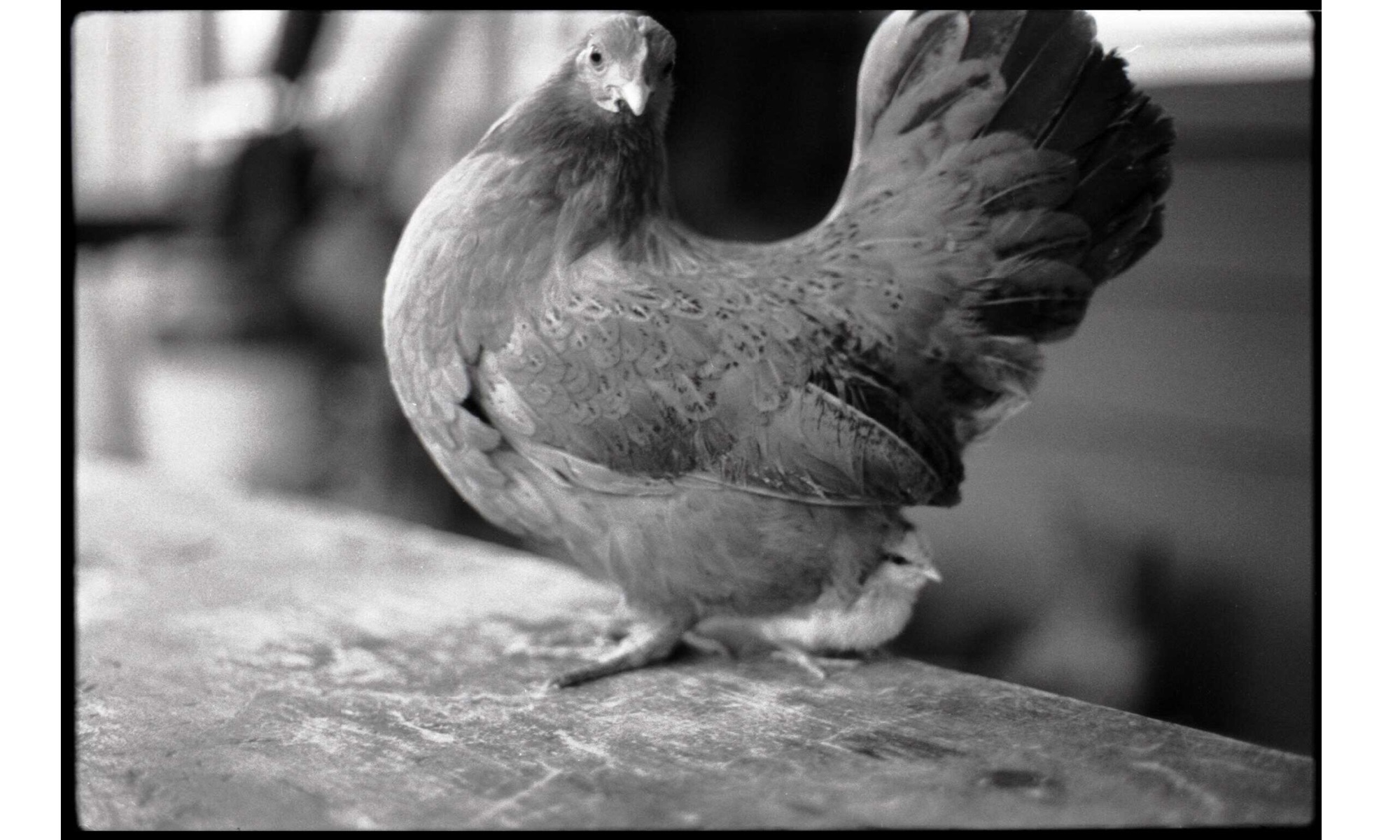It pains to see films that I thought would be in my Top 20 or even 10 when I saw them, barely make the Top 40. That speaks to the number of quality films I saw in 2021. And while the U.S. grabs another spot on the Top 40 (as well as one shared with Canada and Hungary) we’ve got representation in this batch from Mexico, Israel, and and Irish/UK co-production. Of course, what not-surprising characteristic do all these films share? A strong female protagonist.
#35 – Pieces of a Woman, directed by Kornél Mundruczó (Canada/Hungary/USA) – The English-language debut of Hungarian, Chlotrudis-nominated director Kornél Mundruczó (WHITE GOD) is a powerful if uneven portrayal of devastating loss and grief, and how that can create emotional chasms between people who love each other. The film opens spectacularly, with a nearly half-hour, real-time sequence with nary an edit to be seen. It’s a tense, slow-build sequence as Martha and Sean, are faced with the home birth they’ve been planning for for months. Of course, there’s always a hitch, and their midwife is unavailable, so a sub arrives, with calm assurances, to deliver their baby. As one might suspect from the title of the film, things do not go well, and the remainder of the film deals with how this situation affects Martha, Sean, and those around them.
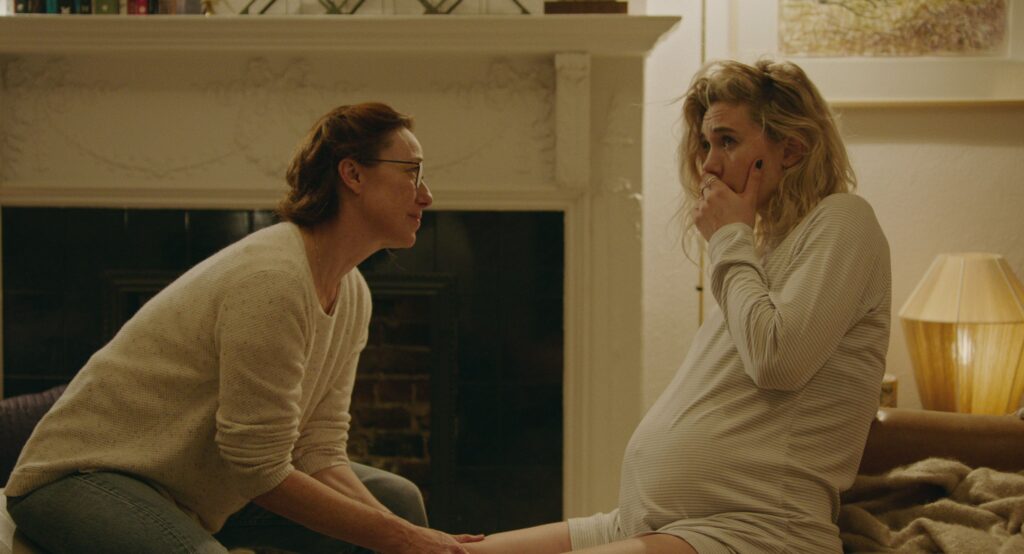
“To start with, Vanessa Kirby (who I was not familiar with) really sold it for me. Her emotional reserve seemed so much more real than hysterical wailings, or outward signs of grief. Oh, the struggle is there, and Kirby lets us see it in her eyes, or in quiet outbursts aimed at those she loves. Ellen Burstyn as Martha’s mother, is the icy, emasculating mother-in-law, who definitely rises above the script (the screenplay is the films weakness) even manages to pull off a rather clumsily written and shot monolog through her skills alone. Most memorable (no surprise if you know me) is Molly Parker’s supporting role as Eva, the midwife, who ends up on trial for her actions. Her first appearance is a beautiful example of subtlety in acting, as she capably handles the home birth situation, and when things start to go a little awry, you can see it in the tiniest ways even as she calmly keeps the situation well in hand… until she doesn’t. Ultimately, despite the clumsy, heavy-handedness of parts of the screenplay, I give PIECES OF A WOMAN high marks, based on performances, Martha’s throughout and powerful story arc, and the deft filmmaking from Mundruczó and cinematographer Benjamin Loeb.
#34 – Los Lobos, directed by Samuel Kishi (Mexico) – LOS LOBOS (THE WOLVES) is a semi-autobiographical story of Lucía, a young woman who emigrates to Albuquerque from Mexico with her two children, Max, age eight, and Leo, age five. After struggling to find a trashed studio to live in, Lucía must work long hours to make money for the family to survive. Her children are given strict rules to follow, the first being they must never leave the apartment. As Lucía’s hours grow longer and longer, the boys find ways to keep themselves occupied, watching other children play in the apartment complex courtyard, speaking occasionally to the Asian landlady who shows them kindness after an initial brusque introduction, and ultimately, venturing out and making some friends, to disastrous results. With the promise of a trip to Disney hanging in the air, Lucía’s struggles threaten to overwhelm her. Through it all, the boys show remarkable resiliency, but what they need the most is love and parenting.
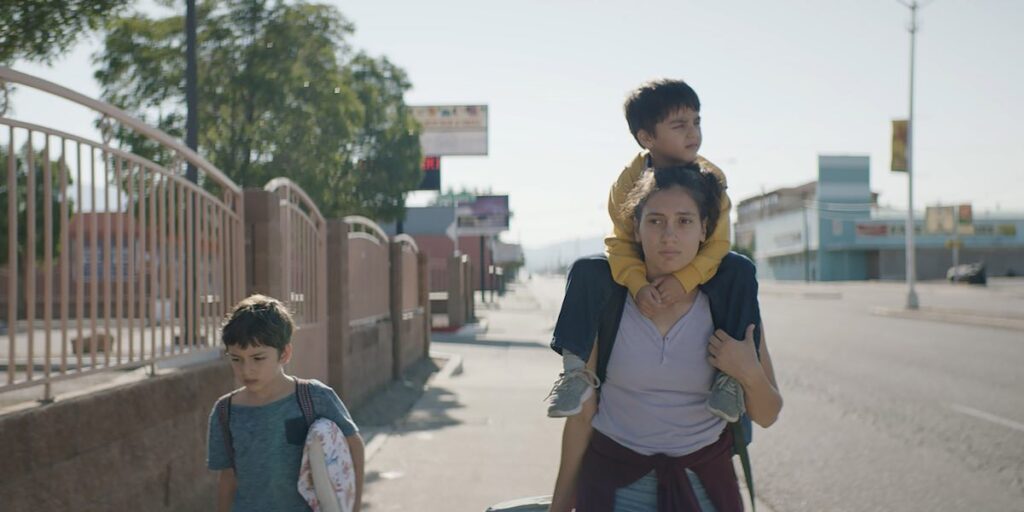
This is Kishi’s second feature film, and it’s spare look and feel, much of the film set in a single room, clearly demonstrates the claustrophobia and powerlessness of a young family thrust into this type of situation. The performances are very strong, from veterans actor Cici Lau (PING PONG PLAYA; LEGALLY BLONDE) as the gruff, yet kindly landlady, to both children, played by brothers, Maximiliano Nájar Márquez and Leonardo Nájar Márquez. But it’s Martha Reyes Arias who truly shines as Lucía, quietly exemplifying the near impossibility of a life with no support, huge responsibility, and no means to get through. It’s a very powerful little film, Kishi has constructed.
#33 – Holler, directed by Nicole Reigel (USA) – Poverty is a major problem in the United States, and recent films exploring people struggling without means to live a fulfilling life have shown how little hope exists in these cases. HOLLER follows the difficult path of a high school girl, her older brother, and their mother who is incarcerated after becoming addicted to pain-killing medication. Ruth has promise. Gifted with a natural intelligence that sees her excelling in school, Ruth could use the stability that seems like a minimal need in growing up successfully. Her brother, Blaze, watches out for her, and also tries desperately to keep up with the bills as mortgage foreclosures mount threatening to take their home. What little care and attention they get comes from Linda, their mom’s best friend and their boss at the scrap metal factory at which they both work. When Ruth finds out that Blaze had secretly submitted a college application on her behalf, and she has been accepted, she is initially upset and unwilling to leave. They don’t have the money, and despite the harsh living conditions, this film ably shows how ties of family and familiarity create an environment where leaving a bad situation seems more difficult that staying.
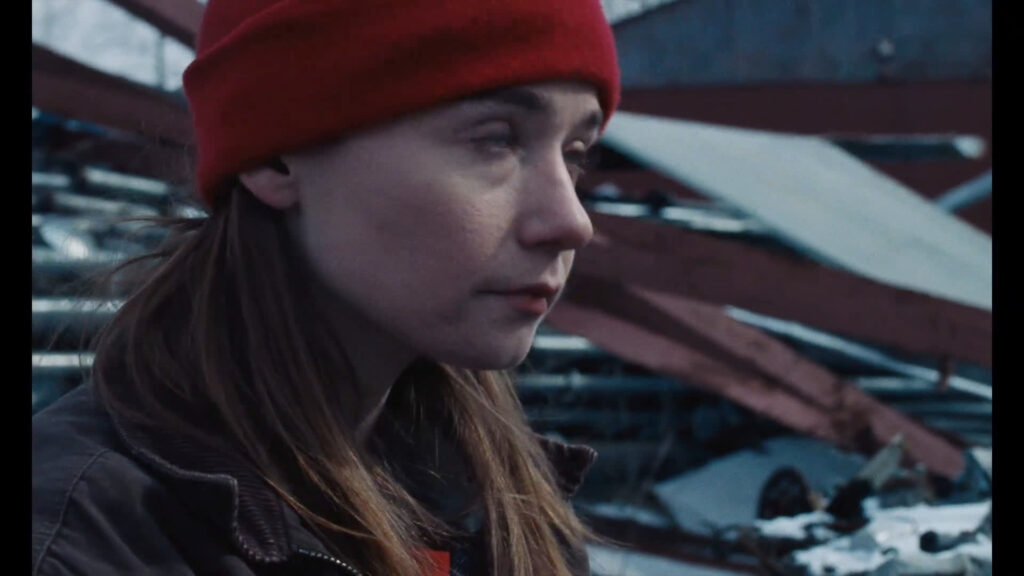
“Some critics have mentioned Debra Granik’s WINTER’S BONE as a touchstone for this film, which I definitely understand, but I see more recent films such as Nia DaCosta’s LITTLE WOODS or even last year’s BULL by Annie Silverstein. It’s interesting that all of these films are helmed by women, and perhaps that’s why family is such a strong component in the telling of these stories. Ruth and Blaze have a typical brother sister relationship, often superficially at odds with one another, but the love and care these two display by their actions is powerful and drive this movie forward. Riegel does a great job in spinning out a bleak tale, with the threat of violence all around, and little chance of a positive outcome, and leaving a glimmer of hope that is small, but surely not far from the dim reality faced by families such as this. Young actress Jessica Braden has already had a lengthy career in television and film, (including playing the Nosebleed Woman in THE LOBSTER), and handles the complex situation face by Ruth beautifully, with the just right amount of intelligence, resentment, and youthful bravado. Kudos too to Gus Halper as brother Blaze, and TV veteran Pamela Adlon as their imprisoned mother. And like Chris, I will call out well-known character actor Becky Ann Baker for bringing fire and experience as Linda. Her scenes are all strong. HOLLER is a strong film, and it will hopefully get a release this year.
#32 – Asia, directed by Ruthy Pribar (Israel) – Mother/daughter stories. We’ve seen a lot of them, and at first, ASIA seems like it might be a bit of a daughter taking care of an irresponsible mother reminiscent of a favorite film of mine, OR (MY TREASURE). ASIA sidesteps that path, and suddenly we think we might heading in more of a TERMS OF ENDEARMENT, or STEEL MAGNOLIAS direction. Writer/director Ruthy Pribar’s too smart for that as well. Instead, we meet Asia, a hard-working, hard-partying woman in her mid-thirties, who works long hours as a nurse, then takes private jobs doing home healthcare, to keep food on the table, and perhaps good medical insurance for her daughter, Vika. The two seem to have little in commons, as Vika hangs out at the skate park with her best friend, the more experienced Natalie, flirting with the boys and doing some teen-aged smoking and drinking. When Asia gets a call that Vika is in the emergency room in the hospital where she works, we learn that the teenager suffers from a degenerative disease, most likely muscular dystrophy (although never stated) and drinking alcohol doesn’t mix well with her medication. Once the set-up is revealed, the heart of the film begins, as the two women are forced to discover the heart of their familial relationship despite fits and starts, anger, frustration, sex, silliness, and a true bond of love that was always there, but emerges as Vika’s health continues to fail.
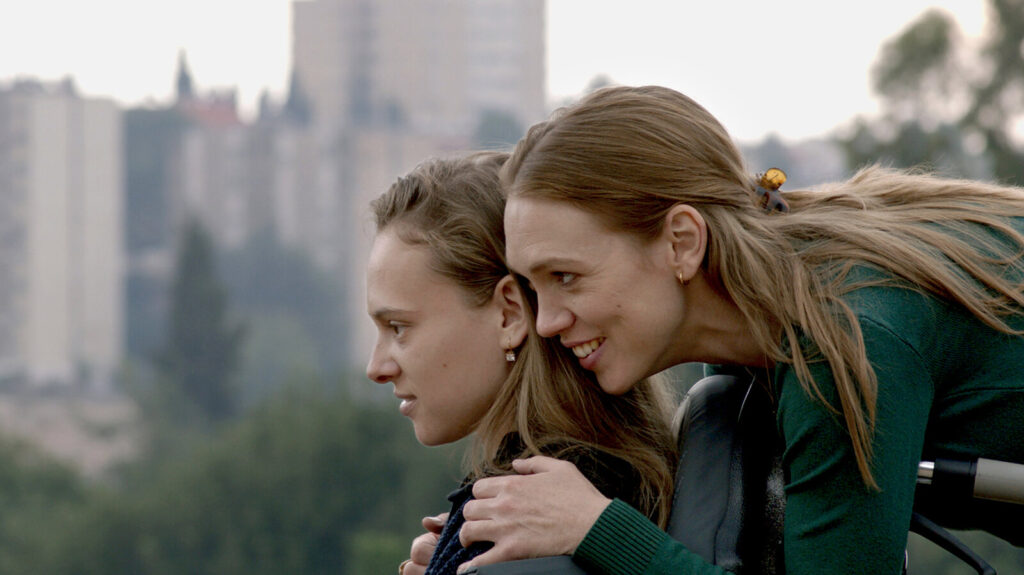
Pribar has written a great script, and her direction is assured, with nothing extraneous, producing a compact 85 minute film. It’s the acting that really lifts ASIA above the expected melodrama. Alena Yiv perfectly balances a young woman who had a child far too early, struggling to care for her ailing child, all while desperately trying to enjoy her own youthful needs. We never think ill of Asia, and Yiv brings her completely and three-dimensionally alive. Shira Haas, well-known for the TV miniseries ‘Unorthodox’ comes across as defiant in the face of a physically debilitating disease, yet accepting her shortened life with dignity and struggling to live every second that goes by whether it’s giggling with her mother, or watching a movie with the visiting nurse she’s attracted to. Yiv and Haas convey their loving bond so clearly with a glance, or a movement, and as the inevitable conclusion draws hear, it’s just beautiful.
#31 – Rose Plays Julie, directed by Joe Lawlor and Christine Molloy (Ireland/United Kingdom) – Upon reading a synopsis of ROSE PLAYS JULIE it would be tempting to try to shoehorn it into a ‘revenge-thriller’ genre. And while there is that element that inherent in the plot, it plays out more like a Greek tragedy involving parents and a child. In this case, the child is question is Rose, a young woman living in Ireland, and studying to be a vet (be warned animal lovers, there are some tough scenes in here relating to animals) who is also fully aware that she was adopted, and has a strong, loving relationship with the couple who raised her, but there has always been a curiosity of the person she would have been had the woman who gave birth to her, and put the name ‘Julia’ on her birth certificate been in the picture. Although the adoption was closed, Rose now has a name and a phone number that leads her directly to her birth mother, Ellen, a successful actor living in England. To say Rose is disappointed when Julie wants no connection with her daughter, is a bit of an understatement, so Rose actually goes to England, posing as a prospective buyer for Ellen’s home which is on the market. There she meets Ellen’s other daughter, a few year’s younger than her, and Ellen herself, where she learns that Rose was born out of a violent act that Ellen only wants to put behind her.
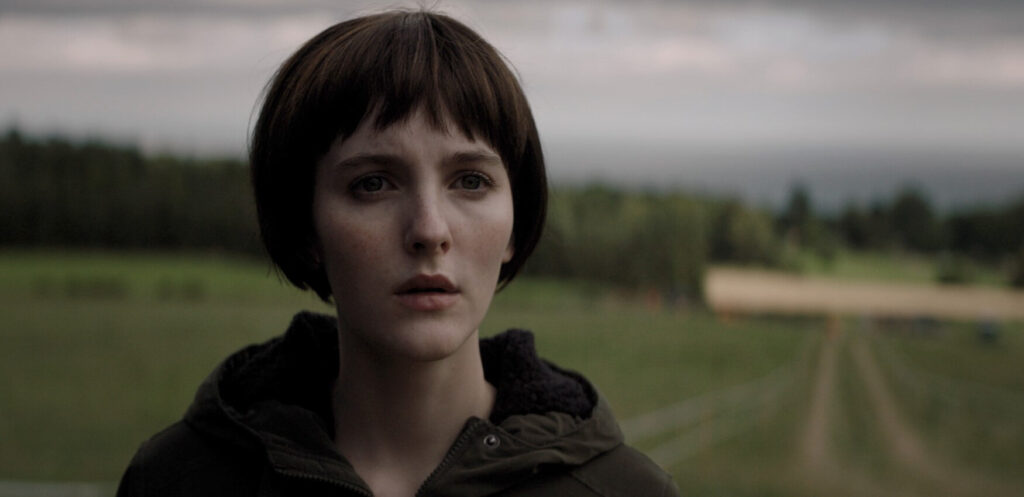
This revelation puts Rose on a different path, one where she tracks down her birth father, an archaeologist, and poses as an actor named Julie, who has been cast as an archaeologist in a play, to get a spot on one of his digs. As the pieces all start to come together — everything from Rose’s academic work studying euthanasia in veterinary medicine, Rose and Ellen slowly developing an actual relationship while Ellen is shooting a show in London, and ‘Julie’ becoming friendly with archaeologist, Peter — it seems pretty clear where things are heading, but things don’t go quite as planned, bringing us to a dark conclusion.
The writing/directing team of Christine Molloy and Joe Lawlor have delivered a elegant, well-structured fourth film together, and one that by all accounts is their most accessible. That may be true, but the pace is still deliberate, and the camera work a little on the artsy side, and it revels in the taut writing, and the strong acting by the three principals, Ann Skelly as Rose, Orla Brady as Ellen, and Aiden Gillen as Peter. This is one intriguing #MeToo drama that was actually conceived before the movement, but is handled beautifully and powerfully in a way that doesn’t take away from the horror and violence of the story, but doesn’t sensationalize it either.
